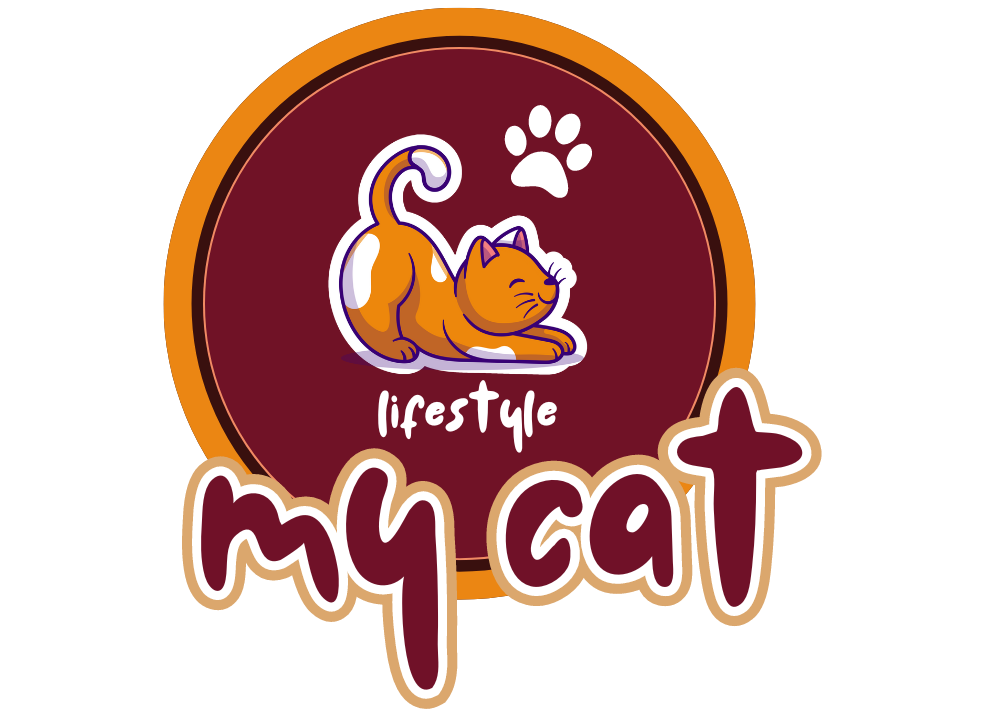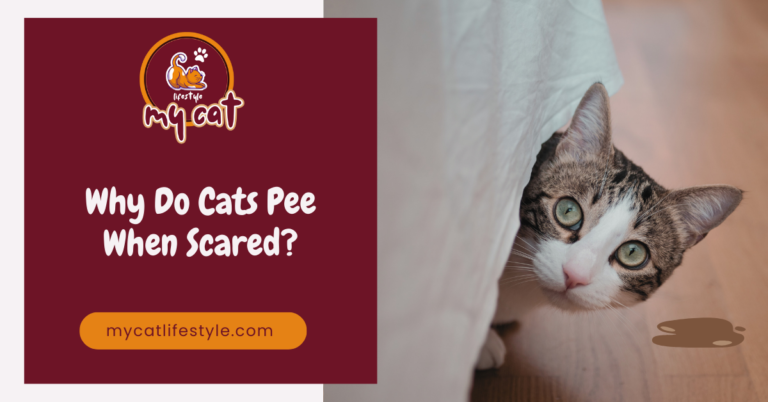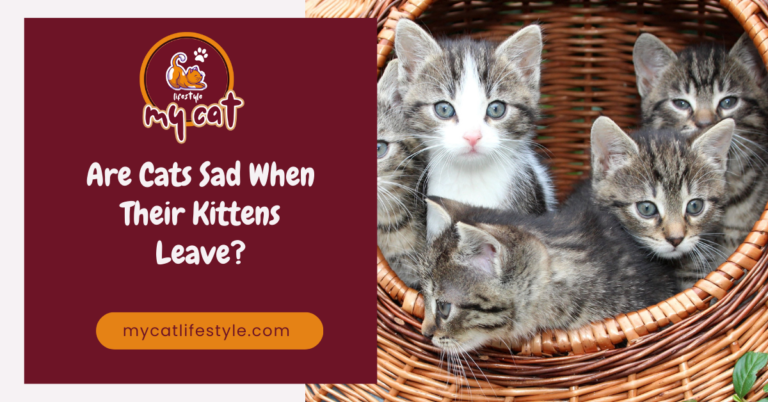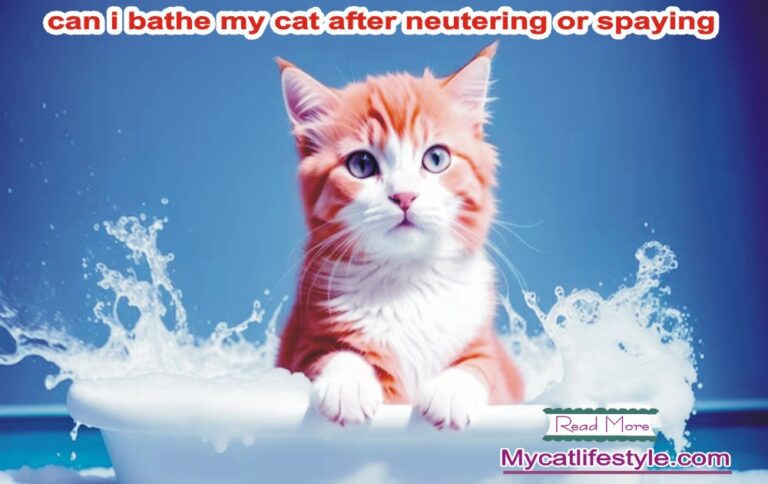Why Does My Cat Meow After Eating?
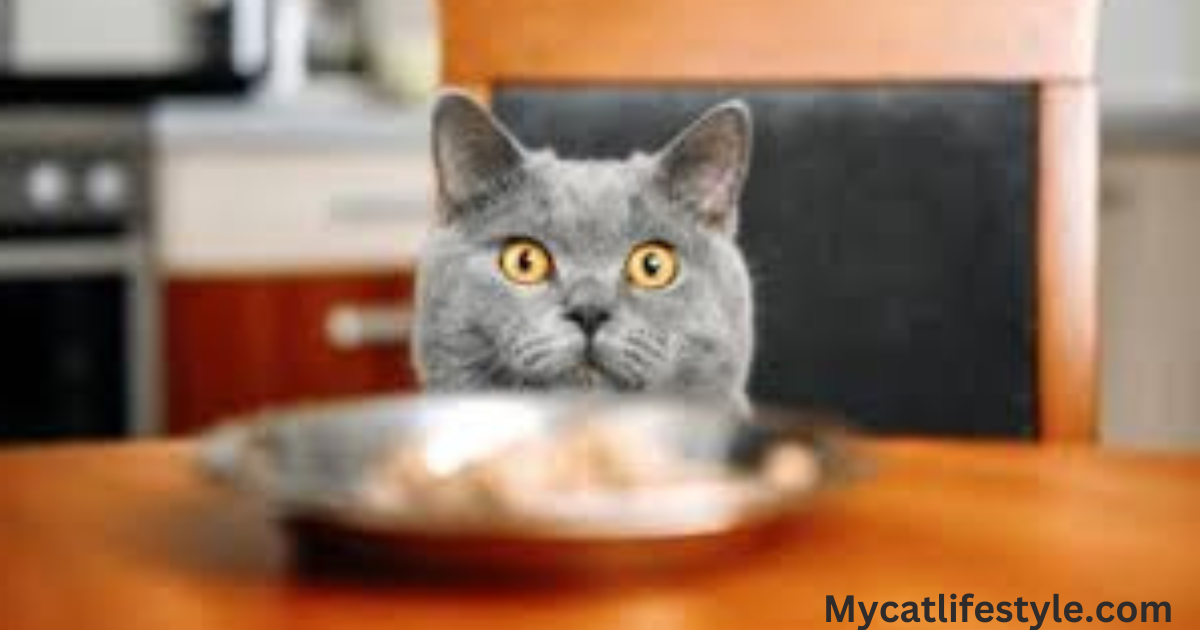
Cats are the most beautiful and sensitive Species in the world. They express their feelings through their behavior and their voice. Food is so essential for them. They enjoy their meal a lot. No, the cat didn’t enjoy their meal. Mealtime is the most favorite part for all the cats in a day. But usually; cats can meow after having their delicious meal. Why does my cat meow after the meal?
In this Blog, you Will Explore the most prevalent causes of a cat’s meowing after eating, as well as techniques for getting her to stop.

Reasons Why Does My Cat Meow After Eating?
There are several reasons why my cat may meow after eating. Some cats are extremely food-motivated and may complain if their food dish is empty. They may do this even if they have had an adequate amount of food. If you’ve lately lowered your cat’s food consumption to help her lose weight, she may have noticed the difference.
Cats may meow after eating if they have bolted their meal. This is a pretty frequent behavior that can be quite upsetting for your cat.
Happy and Satisfied with Food
When a cat is happy, it meows, precisely like a human. It conveys to us that they’re happy or satisfied with the food and situation around them.Sometimes, they meow while also showing happy gestures. It’s a good sign to hear a cat’s meow after eating.
Still hungry and want more food.
Although cats have already eaten, they meow to let you know that they are still hungry and want to eat more. They occasionally will only stop talking to you once their appetite is satisfied.
The cat dislikes the meal
When your cat meows, it may tell you that her food tastes bad. Even though there is a lot of food in the food bowl, and they initially appear uninterested in eating it, the tone will reveal any unfavorable feelings she may have about the flavor.
They want attention
Being gregarious animals, cats frequently like companionship. Since each cat is unique, they will all have different needs. Some cats prefer to eat with you nearby because it makes them feel safer and more secure.
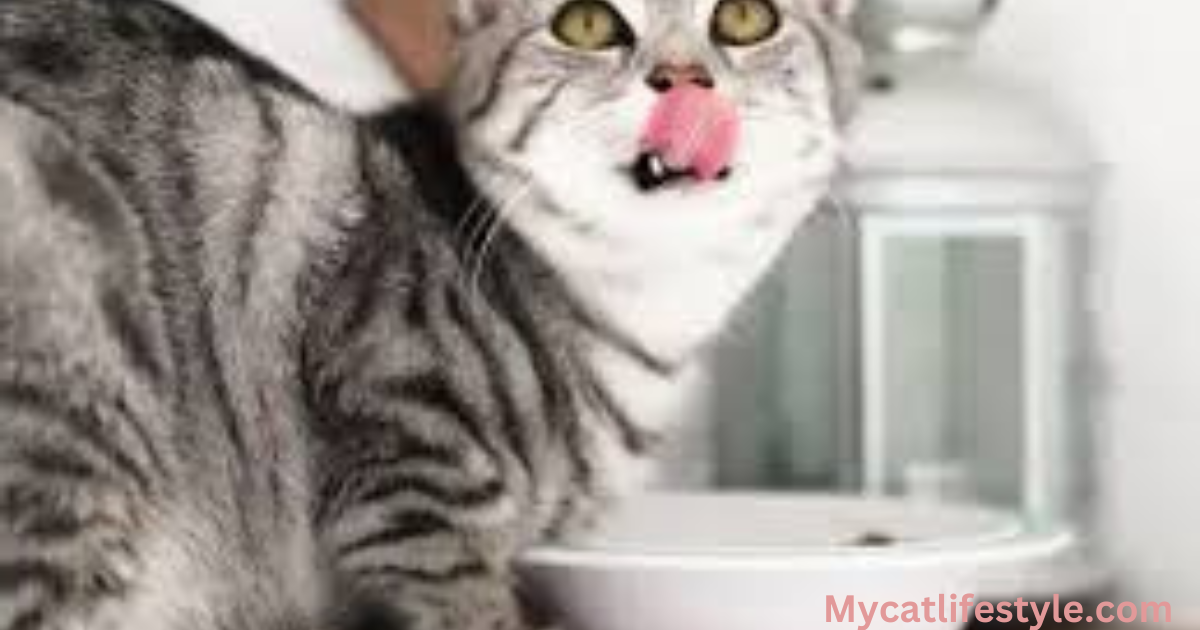
After they’ve eaten, other cats like to socialize with you. Meowing following a meal can be a sign that your cat needs extra love and care. When your cat has finished eating, you can visit and pet her.
Calling Their other partner
Meowing is one of the ways that cats interact with one another. House cats only have a few other ways to communicate vocally; thus, meowing is one of the few ways they can communicate.
This implies that if your cat meows after eating, it could be an attempt to alert a nearby cat of her presence.
A Cat In Heat
If there is a female cat in your home, it might meow after eating because she is in heat. If she is still not fixed, she will meow after eating a meal.A female cat in heat can get pregnant. Usually, the first heat appears between the ages of 4 and 12 months.
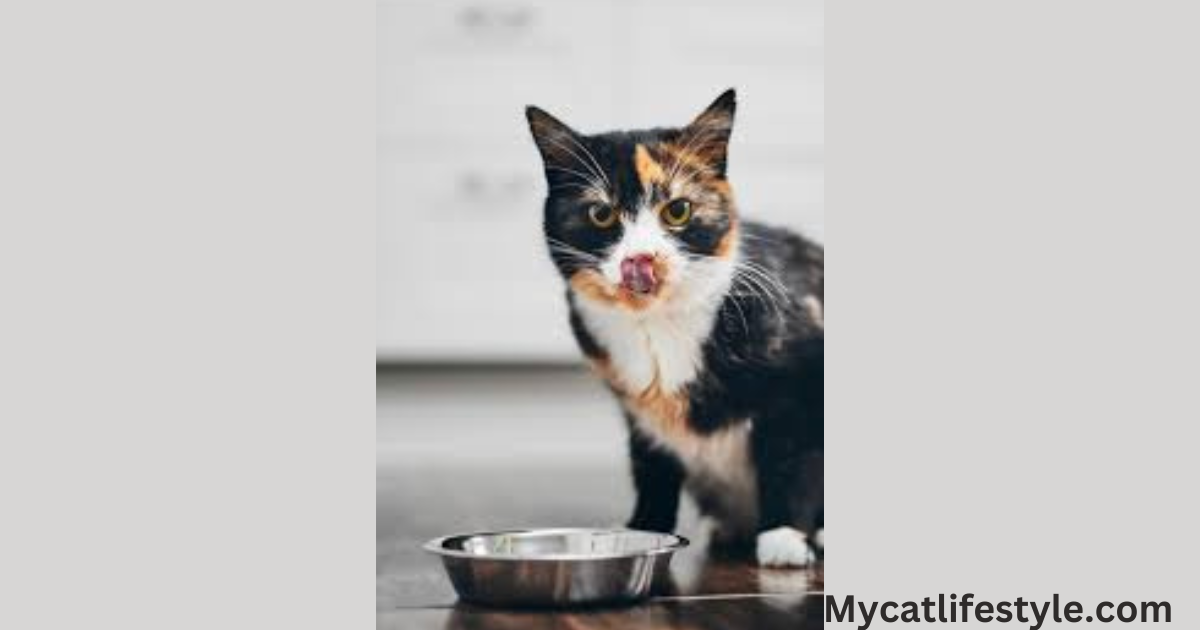
Cats extremely love and vocalize all the time when they are in heat. Their reproductive hormones are overactive, which explains this! Your cat may be out on the search if she begins to show more affection than normal.
Cat is in Stress
If a cat is stressed, they may behave differently after eating, such as meowing. Due to their sensitivity, cats can exhibit a variety of stress-related behaviors, including changes in feeding patterns and vocalizations.
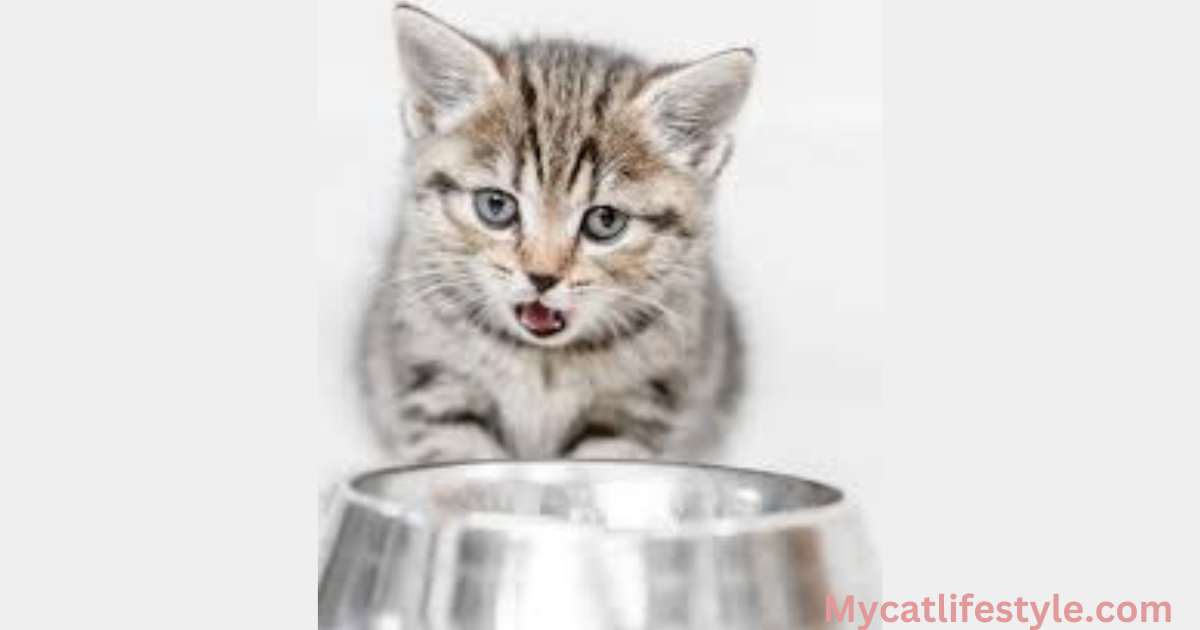
Anxiety can be increased by stressors such as routine disruptions, new pet introductions, and environmental changes. Even after a meal, some cats may become louder in an attempt to get attention while under stress. Post-feeding meowing may also be caused by digestive problems or discomfort associated with the food itself.
Cat owners must keep a careful eye on their furry friends and take into account any environmental or physical stressors. Cats with stress-related behaviors can benefit from a balanced food catered to their needs, stimulating activities, and a quiet, consistent environment. If worries continue, speaking with a veterinarian might provide important information about the cat’s health.
Stomach Problem or Gas Movement
After eating, your cat may meow, which might be a sign of gastrointestinal issues or gas. Cats may vocalize when they are uncomfortable or have stomach problems. Indigestion or gastric distress can be uncomfortable for your cat, which may lead to it meowing to let you know that it is uncomfortable.
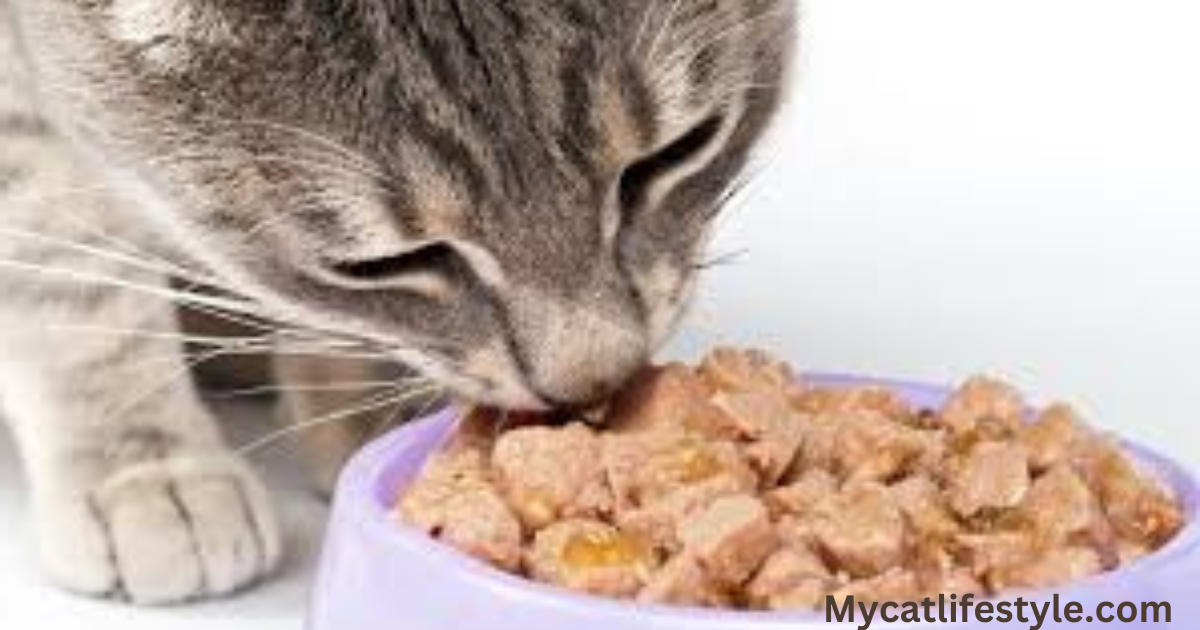
It’s critical to pay attention to any corresponding behaviors, dietary adjustments, or litter box routines. It’s best to speak with a veterinarian if the meowing doesn’t stop or if there are other worrying symptoms.
Expert advice may assist in determining the root cause of the problem and guarantee that your cat gets the right treatment for optimum health and well-being.
Territory Dispute
Meowing after eating may indicate a territorial dispute if you have multiple cats. Cats may vocalize to frighten away rivals when they are fighting for resources or dominance.
While it can also happen to females, this behavior is typically more prevalent in men. It is recommended that you keep your cats apart until the disagreement is settled if you observe them acting this way.
They are having any other illness or pain.
After eating, a cat can scream if it is in discomfort or if it has other health problems unrelated to digestive issues. Vocalization is one of the behavioral changes that can result from discomfort or pain in other areas of the body, such as dental or oral health concerns.
See a veterinarian for a complete examination and accurate diagnosis if your cat is habitually meowing after meals and you believe there may be a health problem.
Fast or Overeating.
If a cat has indulged or fasted, its vocalizations can alter after feeding. A cat that is fasting may vocalize more to show that it is hungry or excited about its food. However, overindulging may cause pain and cause the cat to meow in reaction to feelings of fullness or upset stomach.
You may keep your cat eating healthily and comfortably by keeping an eye on its behavior and modifying its feeding schedule accordingly.
Is It Normal For Cats To Meow After Eating?
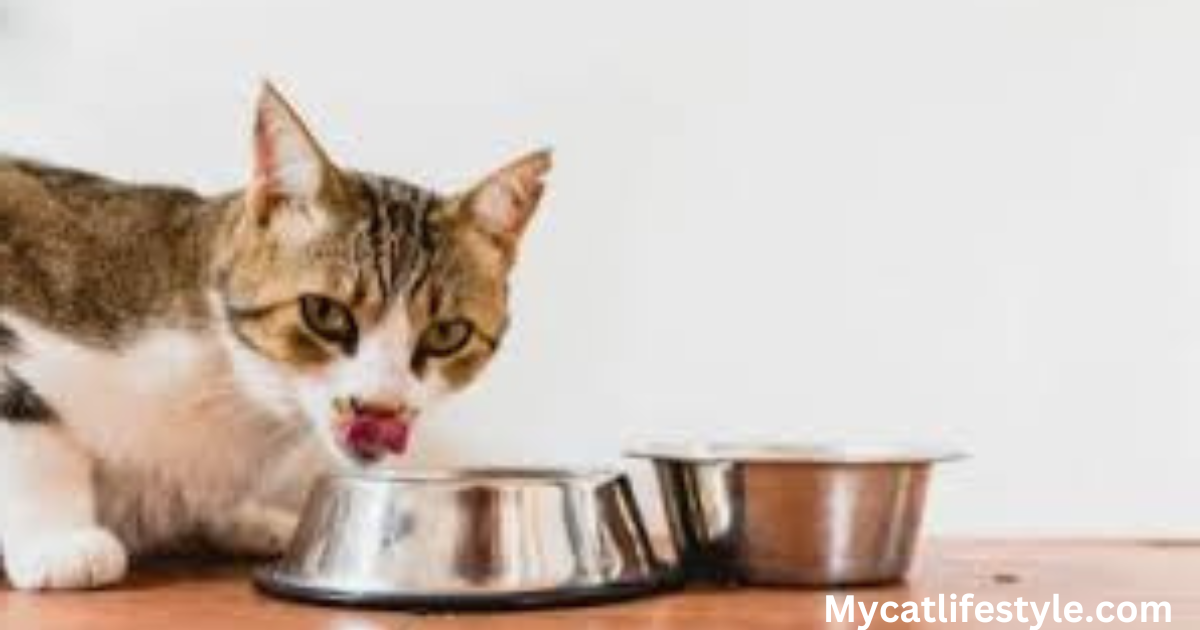
Cats usually meow after eating. This behavior can be induced by a variety of factors, including being unwell, being hot, or interacting with other cats. If your cat starts meowing more than normal after eating, send her to the doctor right away to rule out any underlying problems.
Why Does My Cat Moan While Eating?
Your cat may groan while eating for a variety of reasons. The most prevalent reason, however, is that people love their food and find the event gratifying.
Another reason cats groan while eating is if their gastrointestinal tract is obstructed or blocked or if they are unwell or unhappy.
Other possible factors include stress, anxiety, or the presence of a different cat in the home. If your cat begins to groan while eating, you must take them to the doctor for an examination.
FAQs( Frequently Asking Questions)
Why do cat’s meow when they have food?
When a cat’s stomach makes noises, it’s usually due to basic digestive activity. Although these noises are usually unconnected to more significant health issues, it’s always worth checking them to see if they’re an indication of anything more serious.
Why does my cat come to me after eating?
It may also need warmth and cuddling after a meal. It may desire a warm, comfortable spot to sit and digest its food in the quiet after eating. Your cat trusts you and needs your protection at this time. A cat’s spine includes several nerve endings, and rubbing its back helps digestion.
Do cat’s meow when hungry?
If your cat meows around a mealtime, it might be their way of indicating, “I’m hungry!” While a meowing cat is not always an indication of hunger, it is usually an indication that they want something…and that something is usually food. Cats appreciate regularity and want to eat at the same time every day.
What are cats saying when they meow?
The normal meow is an “asking for something” sound that is mid-length and mid-pitched in tone. The mewl, which is a brief, high-pitched meow, typically implies “hello,” and it may be followed by rubbing against your legs. A lengthy, drawn-out meow typically indicates that your pet is looking for something specific, like supper.
What does it signify when a cat meows a lot?
Your cat may meow excessively if they are hungry, terrified, unwell, or in need of your attention and love. Cats create various meow noises at various times. If your cat is meowing nonstop, finding the source of the problem might be hard.
Final Thoughts.
Finally, there are a few reasons why my cat meows after eating, but most of them are not medical.Keep a watch on your cat and attempt to determine whether or not they are displaying any other unusual behaviors in addition to the yowling.
Is your pet also puking? Is your cat getting enough water? Is your cat urinating more often? If your cat exhibits any of these symptoms, it is strongly advised that you take your cat to the doctor for routine blood work to confirm that your cat is not suffering from renal failure.
I find it quite useful to track my cat’s behaviors so that I can immediately determine which behaviors are problematic how my cat exhibits them.As previously said, because cats are creatures of habit, you can easily determine what is wrong with them or what may be the source of their difficulties.
